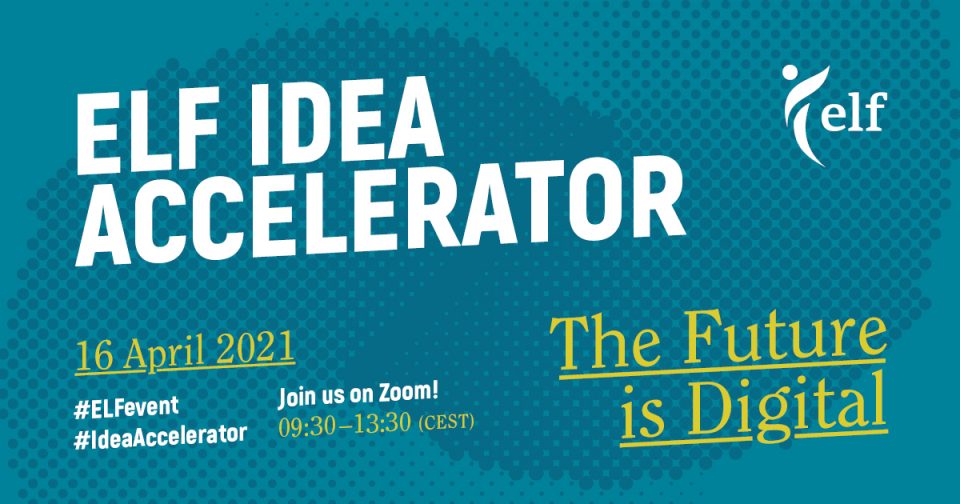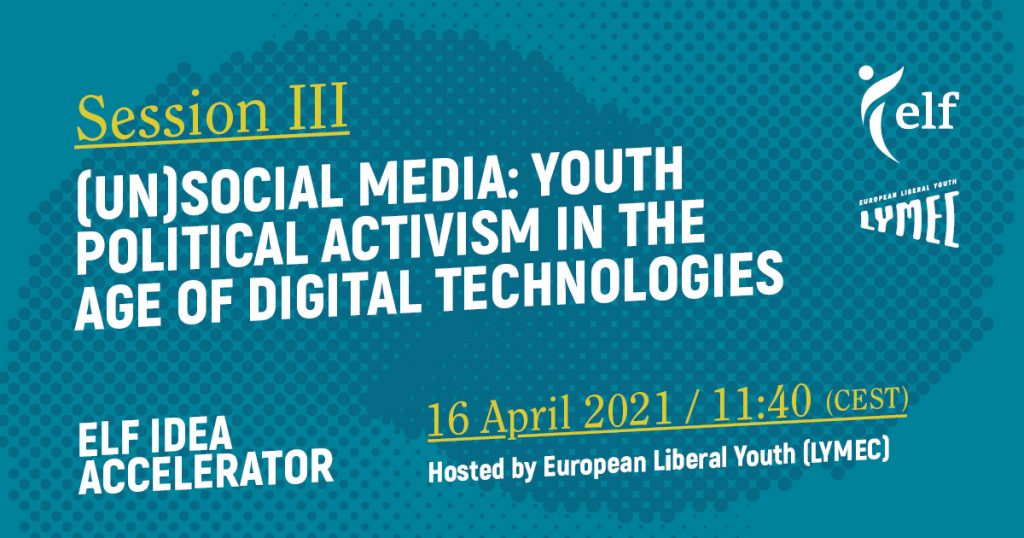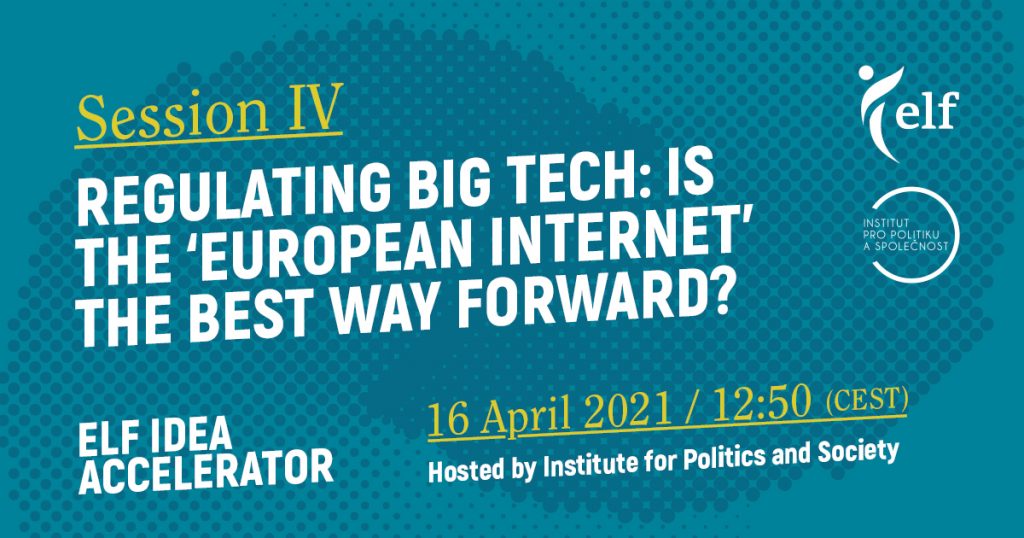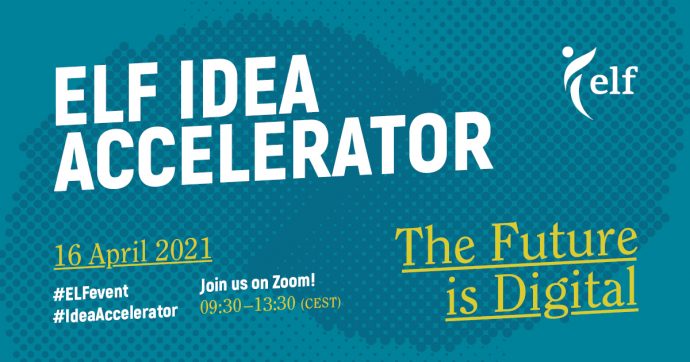16 April 2021 | 09h30 – 13h30 (CET) | Hybrid (Townhall Europe, Brussels + Zoom)
Watch the event’s highlights:
Or re-watch the full event:
Following on last year’s fully online edition, the European Liberal Forum is proud to organise the 3rd edition of its flagship event – the Idea Accelerator. Taking account of our present circumstances, but with a view of the future, the Idea Accelerator hopes to serve as an experimental online space.
In the aftermath of the coronavirus pandemic, we have witnessed an acceleration of the digital transformation of our world. From the way we work to the way we connect with our families and friends, more and more aspects of our lives are going through a digitalisation process that was long overdue.
Some of the topics we will explore are transparency and ethics in AI, how to harness digital tools to strengthen citizen-led democracy, activism in a digital age and how to handle privacy aspects, the Digital Services Act, the need for a distinct European online space and how to best regulate a global internet for European users. ELF members Friedrich Naumann Foundation for Freedom, Project Office for Bulgaria and North Macedonia, European Liberal Youth and the Institute for Politics and Society will bring their perspectives from the ground across Europe.
As the world is still recovering from the coronavirus pandemic, we are turning to a hybrid format to organise this unique event that will bring together policymakers and thought leaders into contact with some of the latest ideas and approaches from across Europe. While we will be broadcasting live from Brussels, everyone is welcomed to join us digitally. It will be a truly inclusive event and we look forward to welcoming you.
Welcoming remarks by Svenja Hahn, Member of the European Parliament, Renew Europe Group & First Vice-President, Board of Directors, European Liberal Forum
Keynote speech by Cornelia Kutterer, Senior Director, Rule of Law & Responsible Tech, European Government Affairs, Microsoft
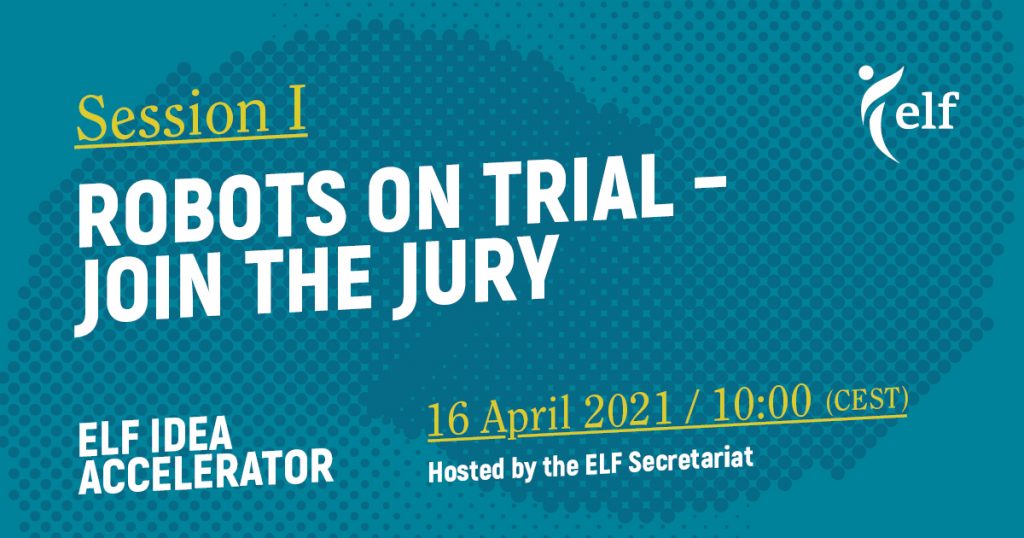
As history has shown us, every technological advancement is accompanied by new legal questions. However, modern technology, and the combination of big data and advanced algorithms resulting in what we call Artificial Intelligence (AI) poses new questions that require thorough knowledge. Ethics and responsibility also need to be factored in by responsible policy makers and legal practitioners. When, if at all, might a “computer” be liable for serious injury in warfare, or be sued for discrimination? Can a “computer” be held responsible like a “person”? Listen to the experts and join the jury!
Sarah Chander, Senior Policy Advisor, European Digital Rights (EDRi)
Elisabeth Hoffberger-Pippan, PhD, Researcher, Stiftung Wissenschaft und Politik, German Institute for International and Security Affairs
Basanta E.P. Thapa, Researcher, Competence Center Public IT (ÖFIT)
Francesco Cappelletti, Research Fellow, European Liberal Forum
Moderated by Beatriz Ríos, EU Affairs reporter
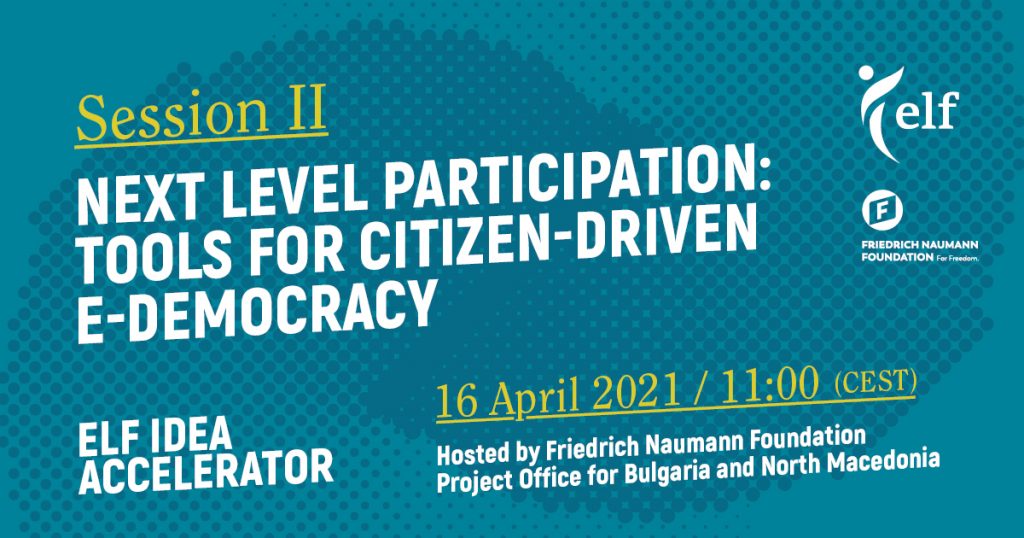
As the digital era impacts every aspect of our lives, harnessing digitalisation for improving democratic processes is becoming more important for citizens and governments. This is also supported by the growing lack of trust in traditional policymaking, which motivates citizens to look actively for new ways of engagement. Voting once every 4 to 5 years is not enough to satisfy engaged and tech-savvy citizens. Existing best practices prove that citizen-driven e-democracy tools do have the potential to support formal democratic decision-making and give us the means to grasp the future of our democracies. Let’s share some good examples!
Maja Cimerman,General Manager, Parlameter Project, Today is a new day, Slovenia
Annija Emersone, Senior Project Manager, ManaBalss Project, My Voice, Latvia
Moderated by Ivaylo Tsonev, Project Coordinator for Bulgaria and North Macedonia, Friedrich Naumann Foundation for Freedom
One of the main challenges that political organisations and especially young people are facing is engagement. In the meantime, new digital innovations are emerging every day which give us more incentives to “stay connected” from home. Youth are the generation most committed to global movements such as climate change and freedom from oppression. How are these new movements leveraging digitalisation and technological innovations to amplify their cause? What are the new ways of communicating and socialising that help new social and political movements emerge? The session will cover these topics while questioning the views of both speakers and participants. Let’s find responses together!
Moritz Körner, Member of the European Parliament, Renew Europe Group
Joana Barbany Freixa, Director General for Digital Society, Catalan Government
Moderated by Laia Comerma, Bureau Member, European Liberal Youth (LYMEC)
Our evolving digital society must be regulated smartly. At the end of 2020, the European Commission presented the Digital Services Act, which would create Europe-wide rules for providing digital services. The EU aims to create its own online space standards, calling for a “European Internet.” Is this “European Internet” the right way forward? Is it now the time to create a framework for European-US regulation of Big Tech and the Internet? What will the relationship be between public institutions and Internet giants? Is the Chinese model acceptable? Let’s hear from the Vice-President of the European Parliament, Dita Charanzová!
Dita Charanzová, Vice-President of the European Parliament, Renew Europe Group
Moderated by Jan Macháček, Chairman of the Board of Trustees, Institute for Politics and Society (IPPS)
Closing remarks by Daniel Kaddik, Executive Director, European Liberal Forum
